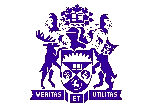YEARS ONE AND TWO
The first two years of the curriculum provide the student with a solid grounding in the basic and clinical sciences. These two years are each divided into a series of blocks: "Introduction to Medicine", "Blood & Oncology", "Digestive System & Nutrition", "Emergency Care", "Endocrine & Metabolism", "Heart & Circulation", "Immunology & Microbiology", "Life Cycle", "Musculoskeletal System", "Respiration & Airways", "Neurosciences, Ey & Ear", "Psychiatry & Behavioural Sciences", "Reproduction", and "Urinary System". Within each block, various subject areas are presented which integrate the basic and clinical sciences. Students participate in early patient contact that emphasizes a patient-centred approach to medicine, beginning in Clinical Methods in Year 1. Part of being a good physician is understanding the community in which patients live. During Community Health courses in the first two years of the program a variety of opportunities for student involvement in the community are provided. At the end of first year, all medical students participate in Rural & Regional Discovery Week to gain clinical experience and exposure to rural and regional medicine in a southwestern Ontario community hospital. The weekly timetable is structured around a case which is introduced at the beginning of each week or subject block. The case provides the stimulus for instruction, and is designed to highlight a number of objectives of the MD program. Throughout the week, the student is exposed to a variety of teaching methods including: small group tutorials, problem based learning, lectures and large group discussions, self-instructional materials, and laboratories. Time is also provided in the curriculum for students to explore career opportunities.
Year 1 Courses
Medicine 115 (weight 1.0) Introduction to Medicine
Medicine 116 (weight 1.0) Infection & Immunity
Medicine 117 (weight 0.25) Skin
Medicine 118 (weight 1.0) Musculoskeletal System
Medicine 119 (weight 1.0) Respiration & Airways
Medicine 120 (weight 1.0) Heart & Circulation
Medicine 121 (weight 1.0) Blood & Oncology
Medicine 139 (weight 1.0) Patient Centered Clinical Methods I
Medicine 114 (weight 1.0) Community Health 1
Year 2 Courses
Medicine 202 (weight 1.0) Endocrine and Metabolism
Medicine 203 (weight 1.0) Digestive System & Nutrition
Medicine 204 (weight 1.0) Genitourinary System
Medicine 205 (weight 1.0) Reproduction
Medicine 206 (weight 1.0) Neurosciences, Eye, & Ear
Medicine 207 (weight 2.0) Psychiatry & the Behavioural Sciences
Medicine 208 (weight 1.0) Emergency Care
Medicine 224 (weight 0.5) Community Health II
Medicine 246 (weight 1.5) Patient Centered Clinical Methods II
YEARS THREE AND FOUR
The third and fourth years of medicine include a 52 week integrated Clerkship(Medicine 475), Clinical Electives, and the Transition Period. The Southwestern Ontario Medicine Education Network includes faculty located from Tobermory to Leamington. Students learn clinical skills in various geograhic sites. The objective is to ensure that Western students at all levels gain an understanding and experience of the practice of Medicine from both a rural/regional and a tertiary care/urban perspective. During the clerkship year a group of students will be based in Windsor. During the third year Clerkship, the student becomes an active member of clinical care teams in the following medical disciplines: family medicine, medicine, obstetrics and gynecology, pediatrics, psychiatry, and surgery. Under the supervision of faculty and more senior housestaff, clerks are given graded responsibility in the diagnosis, investigation, and management of patients in hospital, clinic, and outpatient settings. All students in third year are also required to complete a community Clinical Clerkship for a minimum of four weeks. Beginning in Year 4, Clinical Electives are arranged entirely by the student in any area of medicine, at Schulich. or in other centres. After completion of the Clinical Electives, students return to Schulich in February for the Transition Period which includes a menu of advanced level learning opportunities in basic and clinical sciences. This permits students to further integrate the basic and clinical aspects of medicine in light of their clinical experience. Despite rapid advances in medicine and unprecedented health care restructuring; providing accessible high quality rural health care remains a major challenge in southwestern Ontario, many other parts of Canada, and around the world. Rural Undergraduate Medicine integrates rural and community medicine throughout the years of the medical program. At the end of their first year, all medical students particpate in Rural Discovery Week which provides an opportunity for clinical experience and exposure to rural and regional medicine in a southwestern Ontario community. All students in third year are also required to complete a community Clinical Clerkship for a minimum of four weeks outside of London or Windsor. Regional community clerkship rotations help students develop an understanding of non-tertiary care medicine. Some fourth-year students also complete two-month electives in a variety of near and distant rural/regional communities. The rural training track encompasses a variety of optional experiences for students who wish to have a comprehensive rural-oriented medical education. In addition to curriculum requirements, students in the rural training track have opportunities to participate in more rural/regional experiences. Rural Summer Studentships allows students to work in communities doing research/clinical projects over the summer months. A competition is held for ten Studentships. These are eight-week summer jobs awarded to students at the end of first- and second-year medicine who would like to work under a physician in a rural setting. Student ventures can involve research studies, development projects, or a new program or educational event in a rural community. Medical Electives Overseas is a special program of study in a third world country, available as a clinical science option in Year 4. An application form must be completed and a personal interview arranged. Assistance with funding is available for those students who are selected. Because communication and administrative problems may arise, applicants are advised to begin planning for a third world elective two years in advance. For information contact the Office of Undergraduate Medical Education.
| 
